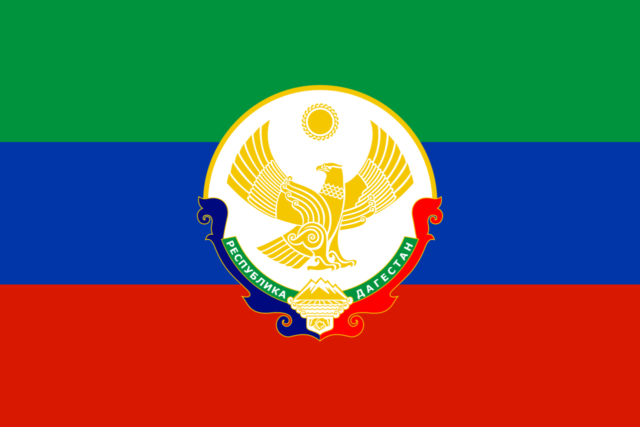How Dagestan-Uzbekistan Economic Cooperation Might Support Russia’s Presence in Central Asia

Kavkaz Files ISSN 2975-0474 Volume Issue 19 Issue 3
Author: Giuliano Bifolchi
The opening of trading houses between Dagestan and Uzbekistan confirmed Makhachkala’s role in promoting its business in Central Asia and, therefore, supporting the Russian presence in this strategic market.
Since the beginning of the Ukraine conflict, the North Caucasus, especially the Republic of Dagestan, has played a significant role in promoting the Kremlin’s economic and political presence in Russia’s blizhnee zarubezhe (near abroad).
After the meeting occurred in Moscow between Vladimir Putin and Shavkat Mirziyoyev, the increasing relation between Makhachkala and Tashkent confirms Russia’s strategy in Central Asia and the function that the North Caucasian republic might have in Kremlin’s foreign policy.
Background Information
On October 24th, 2023, the Chairman of the Government of the Republic of Dagestan, Abdulmuslim Adbulmuslimov, met with the Minister of Investment, Industry and Trade of the Republic of Uzbekistan Laziz Kudratov.
During his visit to Uzbekistan, Abdulmuslimov discussed with the Governor of the Uzbek region of Bukhara, Botir Zaripov, the mutual opening of trading houses to strengthen friendly ties between the countries.
According to the Dagestan government’s press service, the parties considered organising joint production and mutual supplies of agricultural products, mutual opening of trading houses in the republics with the presentation of their products, cooperation and exchange of experience in the tourism sector.
The Uzbek side is showing interest in the supply of vegetables, fruits, nuts, meat, eggs, dairy and other products. The parties analysed also the opportunities to open a store with products from Uzbekistan, including considering the availability of direct flights to Makhachkala from Tashkent and Bukhara.
On October 26th, 2023, at a meeting of the Government of the Republic of Dagestan Abdulmuslim Abdulmuslimov, announced the first agreements with the Republic of Uzbekistan regarding the development of creating a joint textile enterprise.
Abdulmuslimov linked the increasing Dagestani interests in the Uzbek market with the recent meeting between Russian President Vladimir Putin and Uzbek President Shavkat Mirziyoyev on October 6th, 2023.
Dagestan: A Geopolitical Scenario
Dagestan has a strategic position in the North Caucasus since the country overlooks the Caspian Sea and shares its southern border with Azerbaijan.
Thanks to recent infrastructural projects, Dagestan might become a strategic logistic hub which connects the Russian market with the South Caucasus, Central Asia, and the Middle East.
Indeed, Kremlin’s investments in the Makhachkala Sea Trade Port and the country’s transport infrastructures as well as the promotion of local business opportunities to attract foreign direct investments (FDIs) have underlined the importance of this North Caucasian republic in Moscow’s domestic and foreign policy.
On October 26th, 2023, at a meeting of the Government of the Republic of Dagestan, Abdulmuslimov described the country’s economic situation as stable with expect revenues in 2024 of over 156 billion rubles ($1,65 billion).
The Dagestani Prime Minister accentuated that gross regional product could reach at least the level of 3.3% annually thanks to trade, agriculture and construction. In Dagestan, central authorities forecasted an annual growth of industrial production of 8% until 2026.
The Minister of Economy and Territorial Development of the Republic of Dagestan, Gadzhi Sultanov, noted that, despite the emerging economic situation associated with external sanctions pressure, for 8 months of 2023, Dagestan observed positive rates in basic indicators.
In terms of Gross Regional Product (GRP), Dagestan may cross the threshold of 1 trillion rubles ($10,605 billion) in 2024.
Why does it matter?
Abdulmuslimov’s visit to Uzbekistan highlighted Dagestan’s rising economic cooperation in Central Asia, confirming also the Russian attempt to expand its role in the region.
Uzbekistan, being a Central Asian republic, has an important role for the Russian Federation. The country is part of Moscow’s blizhnee zarubezhe (near abroad), an area which belongs to the post-Soviet space where the Kremlin wants to maintain and increase its presence and influence.
The meeting between Vladimir Putin and Shavkat Mirziyoyev at the beginning of October 2023 in Moscow underscored the Russian strategy towards Tashkent. Russian President called the negotiations with his Uzbek counterpart meaningful and productive and aimed at deepening bilateral relations of strategic partnership and alliance
By the way, Dagestan does not limit its interests in Central Asia to Uzbekistan. In June 2023, Sergey Melikov, the Head of the Republic of Dagestan, met with Davlatshokh Gulmahmadzoda, the Ambassador of the Republic of Tajikistan to Russia, to foster collaboration between the two regions, specifically in the areas of economy, trade, sports, tourism, and humanitarian efforts.
The Dagestani role in promoting economic cooperation and trade between Russia and Uzbekistan confirms the North Caucasian role in Moscow’s foreign policy and economic strategy.
Undeniably, since the beginning of the Ukraine conflict, the Kremlin has increased its efforts to link the North Caucasus Federal District (NCFD) with the Caucasus, the Middle East, North Africa, and Central Asia.
Therefore, thanks to its positive economic performance registered in a period characterised by Western sanctions towards Russia, Dagestan might increase its strategic role of logistic hub capable of connecting the North Caucasian market with neighbouring countries and Central Asia.
Beining a Muslim republic of the Russian Federation where Moscow started its pilot project related to the Islamic banking, in a realistic scenario, the Republic of Dagestan might increase its economic and political relations with the Caspian Sea countries, especially the Islamic Republic of Iran, and Central Asia following the steps of Tatarstan, a Russian republic which we might consider another diplomatic and economic tool the Kremlin uses in its blizhnee zarubezhe.
Do you like SpecialEurasia reports and analyses? Has our groundbreaking research empowered you or your team? Now is your chance to be a part of our mission! Join us in advancing independent reporting and unlocking the secrets of Eurasia’s complex geopolitical landscape. Whether through a one-time contribution or a monthly/yearly donation, your support will fuel our relentless pursuit of knowledge and understanding. Together, let’s pave the way for a brighter future. DONATE NOW and secure your place in shaping the geopolitical narrative.
